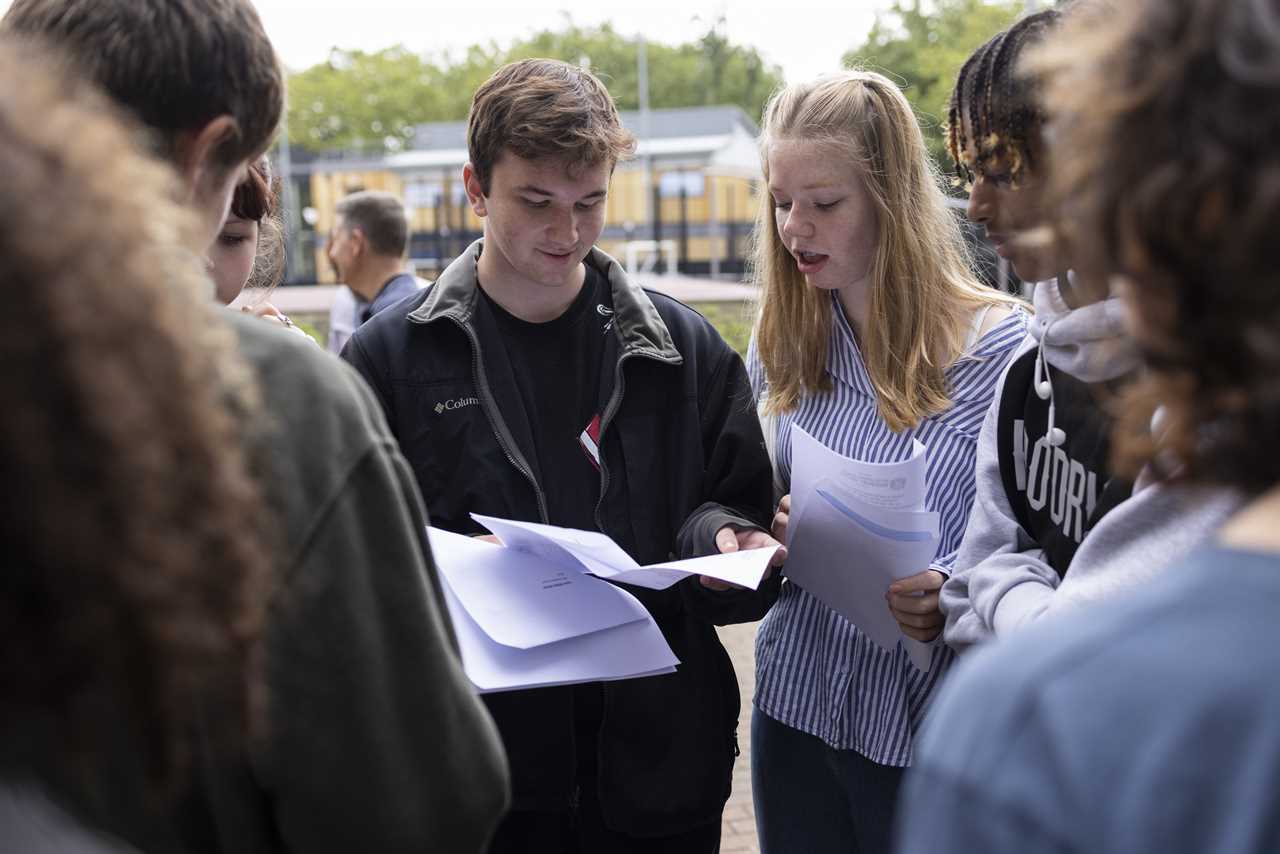
Pre-pandemic grading leads to a significant drop in top GCSE grades
Around 300,000 fewer top GCSE grades are expected to be awarded this week, according to education expert Prof Alan Smithers. The return to pre-pandemic grading by regulator Ofqual means that results will be similar to those in 2019, before the Covid-19 pandemic hit. This comes as a shock to students and their parents, as the higher grades that were awarded due to teacher assessments instead of exams will no longer be given.
An end to generous teacher assessments leads to a record drop in top GCSE grades
Prof Smithers warns that the restoration of the 2019 grade pattern in England will result in a significant decrease in top GCSE grades. He explains that although the changes may not seem significant as percentages, this drop of around 300,000 top grades is substantial given the large number of entries. Pupils and parents may find these grades hard to accept, especially in comparison to their peers in previous years.
Emergency reliance on teacher assessments led to inflated number of top awards
Prof Smithers argues that the necessary shift away from teacher assessments is crucial because it allowed for an increase of 437,964 top awards, giving many students a false idea of their capabilities. By returning to the pre-pandemic grading system, it aims to provide a more accurate reflection of students' abilities.
A-level grades and pass rates also affected
The impact of the return to pre-Covid grading is also evident in A-level results. Approximately 73,000 fewer top grades were awarded, and the pass rate above grade E dropped to 97.3% from 98.4% in 2022, marking the lowest pass rate since 2008.
Clearing courses sought after by 19,000 rejected university applicants
Following the release of their results, 19,000 teenagers have been rejected from their top two university preferences and are now competing for Clearing courses. However, there is some positive news as 79% of 18-year-olds secured their first choice degree, an increase from 74% in 2019.
Did you miss our previous article...
https://trendinginthenews.com/uk-politics/london-mayors-office-accused-of-trying-to-silence-scientists-over-emissions-research






